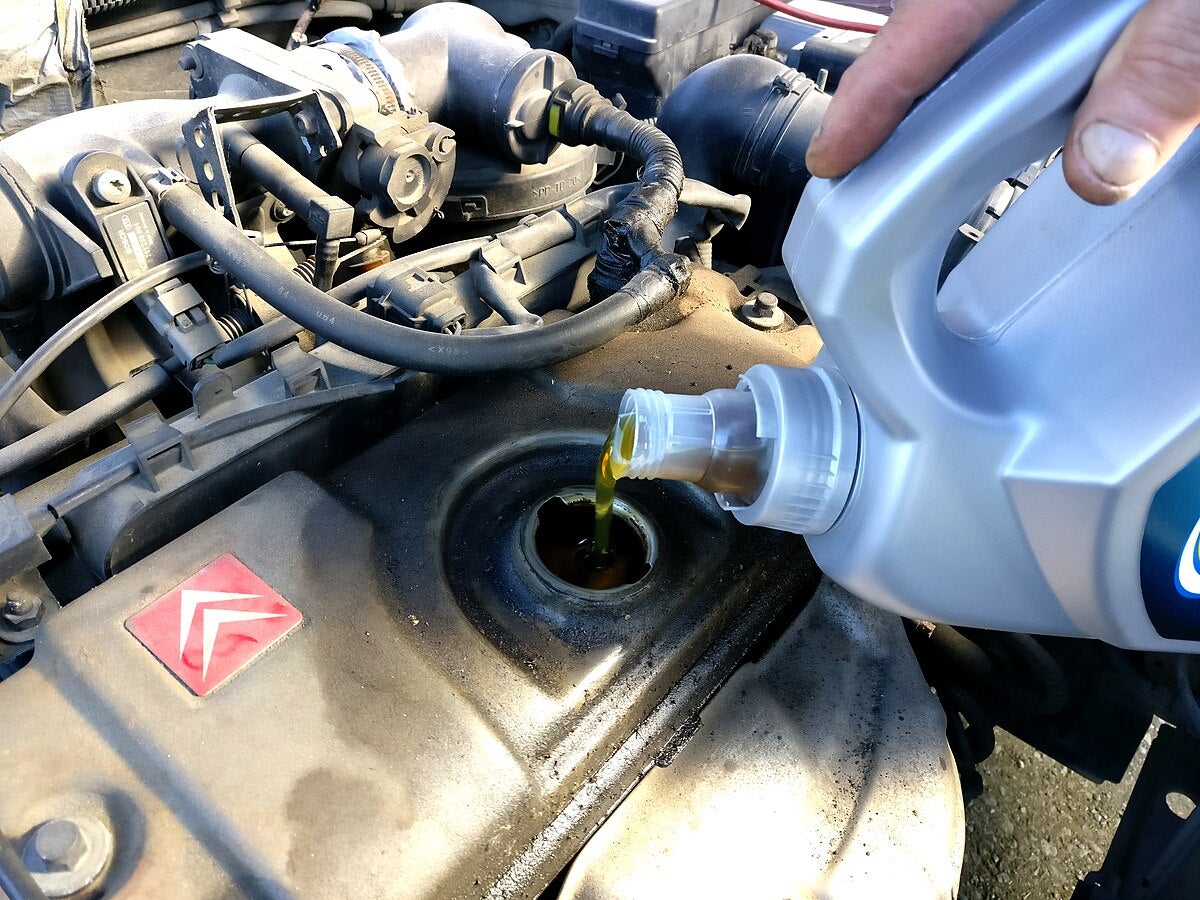Everything You Need to Know About Synthetic Oil

When it comes to car maintenance, one of the most crucial aspects is choosing the right oil. Oil acts as the lifeblood of an engine, providing lubrication, reducing friction, and keeping all the components running smoothly. In recent years, synthetic oil has gained popularity as a superior alternative to conventional oil. In this blog post, we will explore everything you need to know about synthetic oil, its benefits, address common misconceptions, and answer frequently asked questions. With that being said, while deciding if you want to have synthetic oil in your vehicle, you should consult your mechanic or local dealership to determine if it’s a wise move for you.
Benefits of Synthetic Oil
Synthetic oil offers several advantages over conventional oil, making it a popular choice among car enthusiasts and mechanics alike. While it’s more expensive, there are plenty of reasons why you should consider synthetic oil. Here is a look at the benefits of synthetic oil and what it can do for you and your vehicle.
- Higher Quality and Uniform Composition: Synthetic oil's higher quality and uniform composition set it apart from conventional oil. Unlike conventional oil, which is derived from crude oil and undergoes minimal refining, synthetic oil is meticulously engineered in a laboratory. This precise control over its composition allows for the creation of a more consistent and uniform molecular structure.
The uniform composition of synthetic oil ensures that it provides optimal protection and lubrication to the engine's components. The molecules in synthetic oil are designed to be more stable and resistant to breakdown, resulting in better performance under extreme conditions. This enhanced stability allows synthetic oil to maintain its viscosity better, ensuring proper lubrication even at high temperatures.
- Lower Impurities and Better Oxidation Stability: Synthetic oil is purified during the manufacturing process, resulting in fewer impurities and contaminants. This leads to reduced engine sludge and better overall engine performance. Additionally, synthetic oil has better oxidation stability, meaning it doesn't break down as quickly when exposed to high temperatures.
- Improved Viscosity Index and Flash Point: Synthetic oil has a higher viscosity index, meaning it maintains its thickness and lubricating properties across a wide range of temperatures. It also has a higher flash point, which reduces the risk of oil evaporation and keeps the engine protected even under extreme conditions. This is great if you push your vehicle to the limit, especially in tough conditions like extreme heat or extreme cold.
- Longer Shelf Life and Better Energy Efficiency: Synthetic oil has a longer shelf life than conventional oil, making it a great option for vehicles with infrequent use. Moreover, its advanced formulation reduces friction, improving fuel economy and overall energy efficiency.
- Biodegradability: In addition to its performance advantages, synthetic oil also offers environmental benefits, particularly in terms of biodegradability. Many synthetic oils are formulated to be more environmentally-friendly, with some options being fully biodegradable.
Biodegradability refers to the ability of a substance to break down naturally and be absorbed by microorganisms in the environment. Unlike conventional oil, which can persist in the environment for an extended period and pose a risk to ecosystems if not properly disposed of, synthetic oils have properties that enhance their biodegradability.

Addressing Misconceptions and Common Questions
Let's address some common misconceptions and questions about synthetic oil:
- Is synthetic oil bad for older cars?
Contrary to popular belief, synthetic oil is not harmful to older cars. In fact, it can provide numerous benefits such as improved engine performance, reduced wear-and-tear, and increased protection. However, it's essential to consult your car's manufacturer or a trusted mechanic to determine the most suitable oil for your specific vehicle.
- Do oil filters need to be changed when switching to synthetic oil?
When making the switch to synthetic oil, it is advisable to also replace the oil filter. While synthetic oil offers numerous benefits over conventional oil, its different properties and composition may require a compatible filter to ensure optimal filtration and performance.
Oil filters play a crucial role in the lubrication system of an engine. They are designed to remove contaminants, such as dirt, debris, and metal particles, from the circulating oil to protect vital engine components. Over time, these filters can become clogged with accumulated debris, reducing their effectiveness in filtering out contaminants.
- Can synthetic and conventional oil be mixed?
While it is indeed possible to mix synthetic and conventional oil, it is generally not recommended due to several reasons. Mixing oils can compromise the performance and benefits of synthetic oil, making it best to stick with one type of oil to maximize its advantages.
Synthetic oil is specifically formulated with a precise combination of high-quality base oils and advanced additives to provide superior lubrication, engine protection, and performance. These additives may not be fully compatible with conventional oil, which has a different formulation and composition.
When synthetic and conventional oils are mixed, there is a potential for adverse effects such as reduced lubricity, decreased viscosity stability, and diminished overall performance. The different properties and characteristics of each oil can interact in unpredictable ways, potentially compromising the engine's efficiency and longevity.

Conclusion
Synthetic oil has revolutionized the automotive industry with its superior performance and numerous benefits. From its higher quality and uniform composition to improved oxidation stability and energy efficiency, synthetic oil is a reliable choice for car owners looking to optimize engine performance and prolong engine life. By dispelling common misconceptions and answering frequently asked questions, we hope that we provided clarity and helped you understand your car's lubrication needs. Remember, consulting with a trusted mechanic is always recommended to ensure the best oil choice for your vehicle.
If you are interested in getting better performance out of your Mazda, you should take your Mazda into Seacoast Mazda. We can help determine if synthetic oil is right for you. While it may cost you a little more, you’ll be able to get more performance out of your Mazda, and it will run smoother.
Schedule Service
